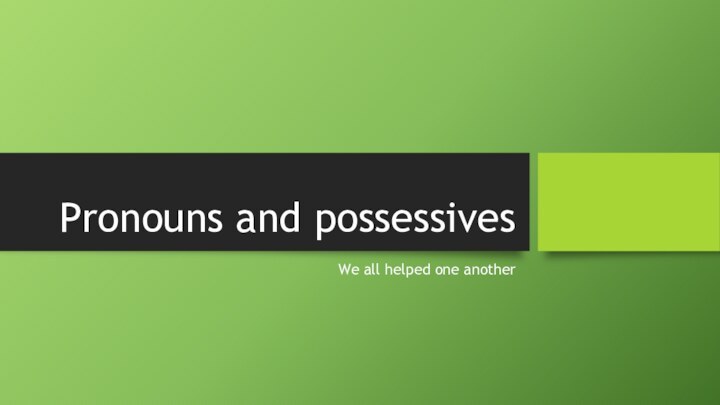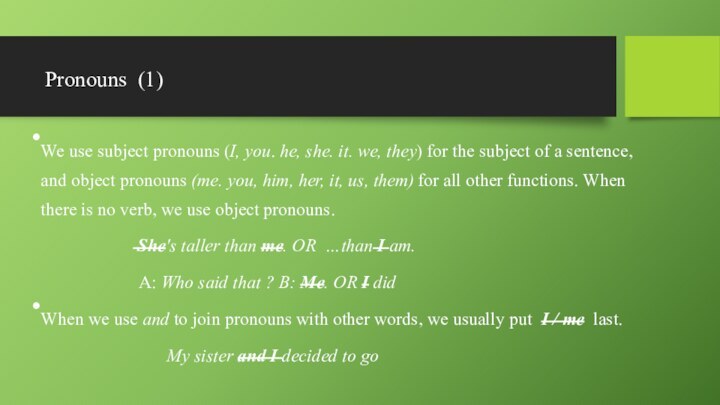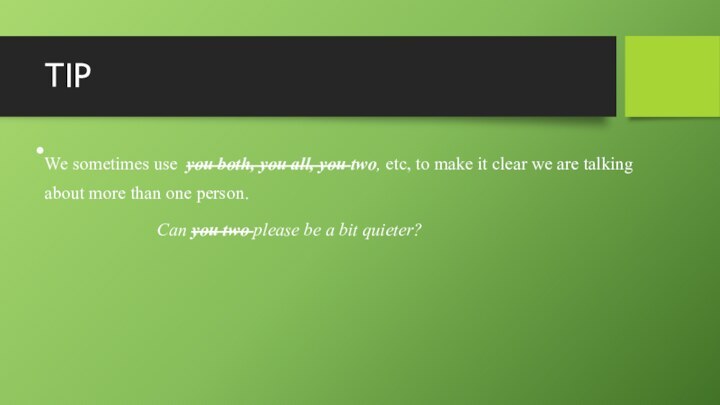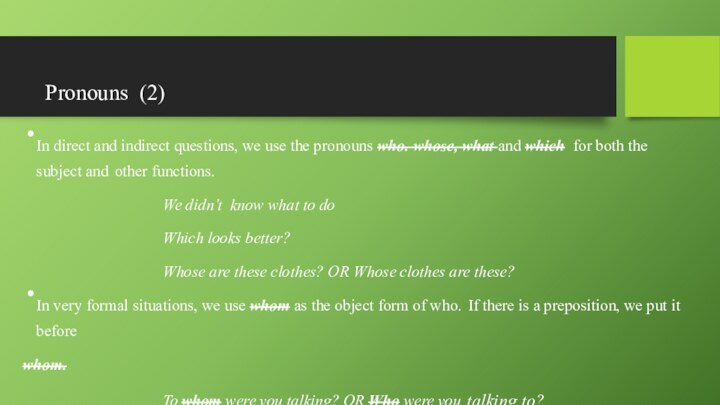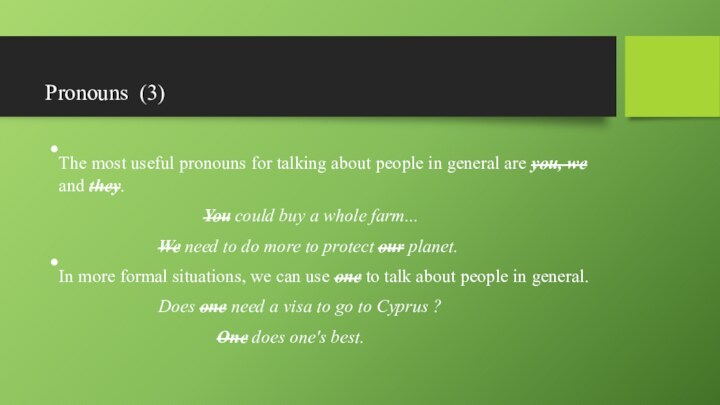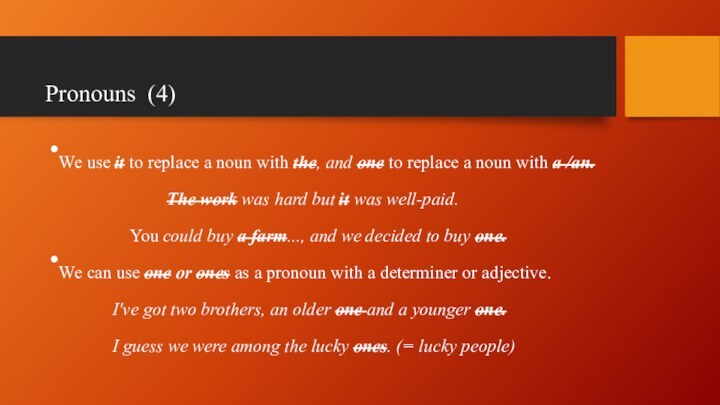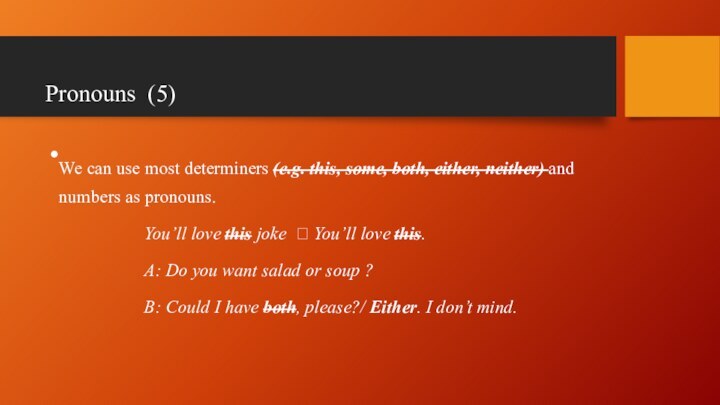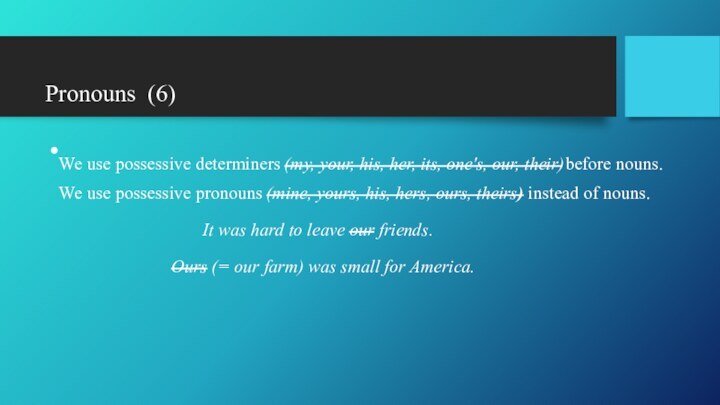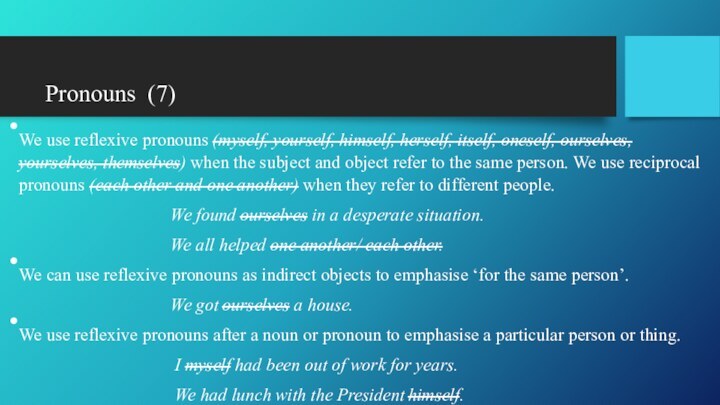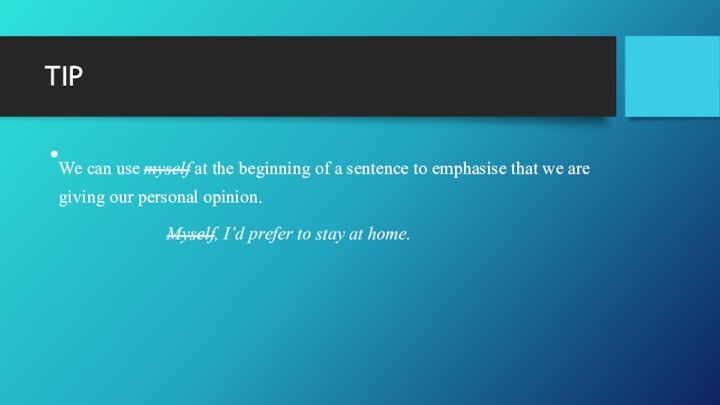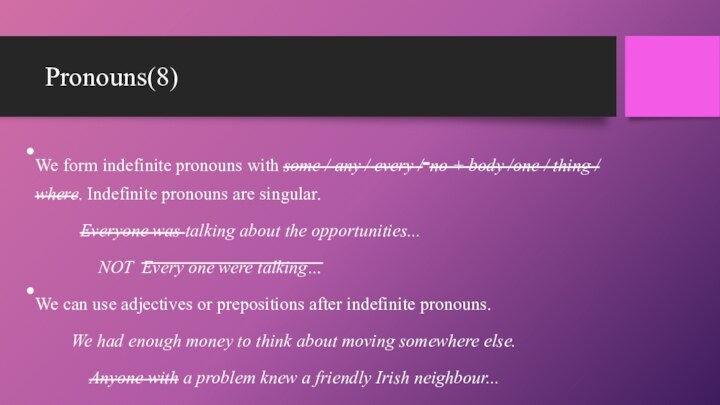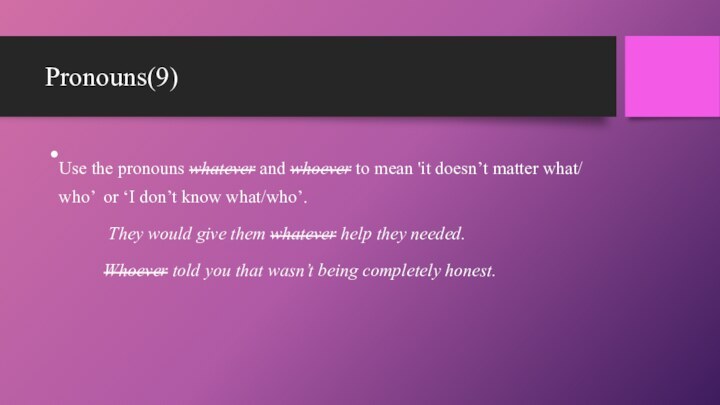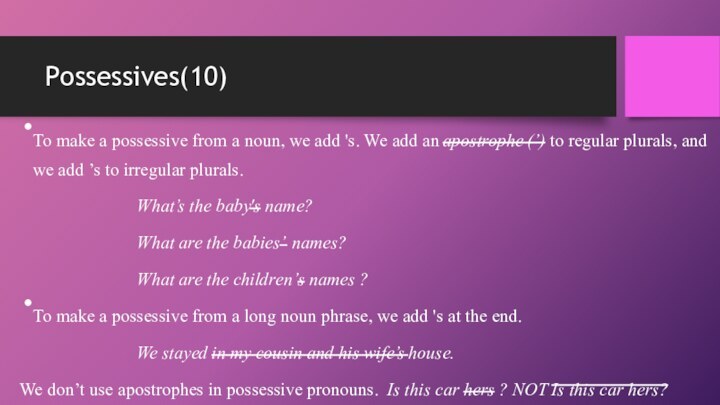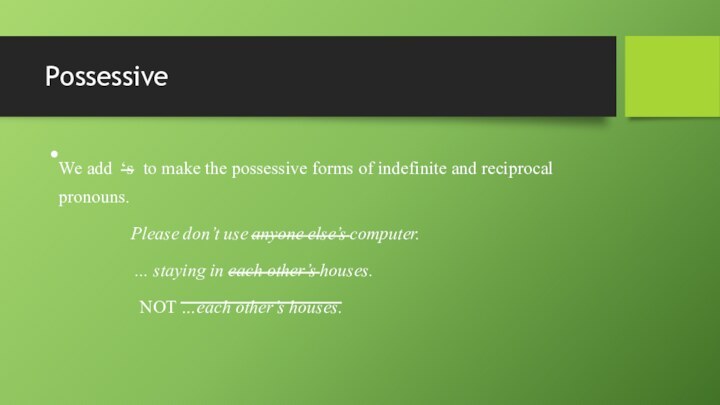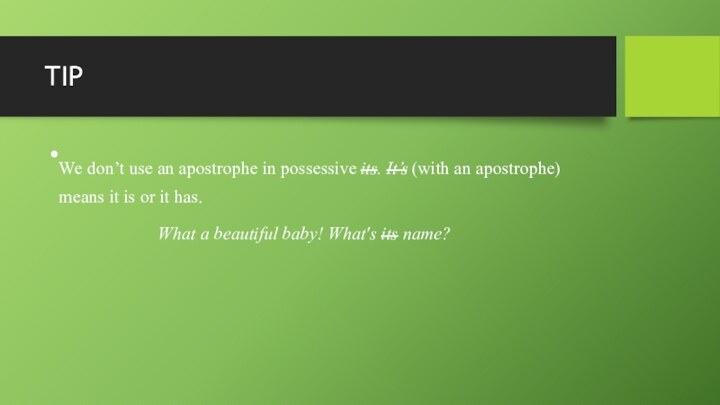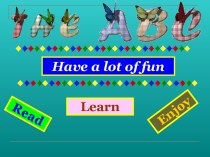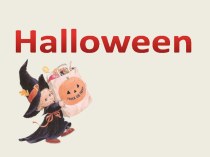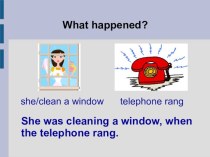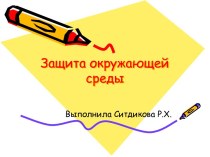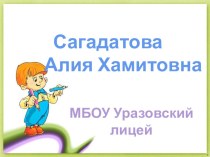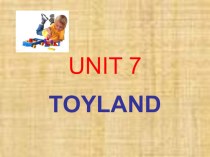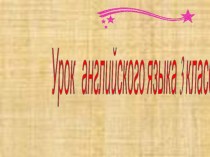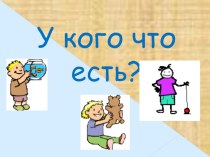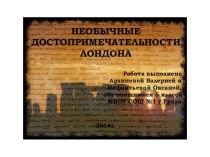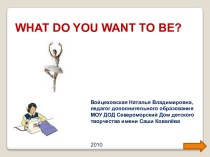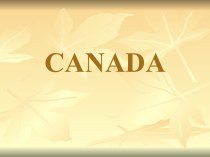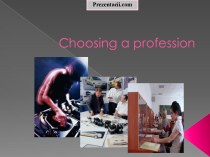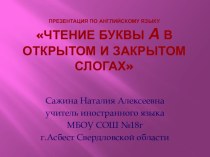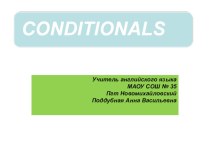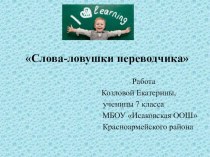We use subject pronouns (I, you. he, she. it.
we, they) for the subject of a sentence, and object pronouns (me. you, him, her, it, us, them) for all other functions. When there is no verb, we use object pronouns.
She's taller than me. OR …than I am.
A: Who said that ? B: Me. OR I did
When we use and to join pronouns with other words, we usually put I / me last.
My sister and I decided to go
Слайд 3
TIP
We sometimes use you both, you all, you
two, etc, to make it clear we are talking
about more than one person.
Can you two please be a bit quieter?
Слайд 4
Pronouns (2)
In direct and indirect questions, we use
the pronouns who. whose, what and which for both
the subject and other functions.
We didn’t know what to do
Which looks better?
Whose are these clothes? OR Whose clothes are these?
In very formal situations, we use whom as the object form of who. If there is a preposition, we put it before
whom.
To whom were you talking? OR Who were you talking to?
Слайд 5
Pronouns (3)
The most useful pronouns for talking about
people in general are you, we and they.
You could buy a whole farm...
We need to do more to protect our planet.
In more formal situations, we can use one to talk about people in general.
Does one need a visa to go to Cyprus ?
One does one's best.
Слайд 6
Pronouns (4)
We use it to replace a noun
with the, and one to replace a noun with
a /an.
The work was hard but it was well-paid.
You could buy a farm..., and we decided to buy one.
We can use one or ones as a pronoun with a determiner or adjective.
I've got two brothers, an older one and a younger one.
I guess we were among the lucky ones. (= lucky people)
Слайд 7
Pronouns (5)
We can use most determiners (e.g. this,
some, both, either, neither) and numbers as pronouns.
You’ll love this joke ? You’ll love this.
A: Do you want salad or soup ?
B: Could I have both, please?/ Either. I don’t mind.
Слайд 8
Pronouns (6)
We use possessive determiners (my, your, his,
her, its, one's, our, their) before nouns. We use
possessive pronouns (mine, yours, his, hers, ours, theirs) instead of nouns.
It was hard to leave our friends.
Ours (= our farm) was small for America.
Слайд 9
Pronouns (7)
We use reflexive pronouns (myself, yourself, himself,
herself, itself, oneself, ourselves, yourselves, themselves) when the subject
and object refer to the same person. We use reciprocal pronouns (each other and one another) when they refer to different people.
We found ourselves in a desperate situation.
We all helped one another/ each other.
We can use reflexive pronouns as indirect objects to emphasise ‘for the same person’.
We got ourselves a house.
We use reflexive pronouns after a noun or pronoun to emphasise a particular person or thing.
I myself had been out of work for years.
We had lunch with the President himself.
Слайд 10
TIP
We can use myself at the beginning of
a sentence to emphasise that we are giving our
personal opinion.
Myself, I’d prefer to stay at home.
Слайд 11
Pronouns(8)
We form indefinite pronouns with some / any
/ every / no + body /one / thing
/ where. Indefinite pronouns are singular.
Everyone was talking about the opportunities...
NOT Every one were talking…
We can use adjectives or prepositions after indefinite pronouns.
We had enough money to think about moving somewhere else.
Anyone with a problem knew a friendly Irish neighbour...
Слайд 12
Pronouns(9)
Use the pronouns whatever and whoever to mean
'it doesn’t matter what/ who’ or ‘I don’t know
what/who’.
They would give them whatever help they needed.
Whoever told you that wasn’t being completely honest.
Слайд 13
Possessives(10)
To make a possessive from a noun, we
add 's. We add an apostrophe (’) to regular
plurals, and we add ’s to irregular plurals.
What’s the baby's name?
What are the babies’ names?
What are the children’s names ?
To make a possessive from a long noun phrase, we add 's at the end.
We stayed in my cousin and his wife’s house.
We don’t use apostrophes in possessive pronouns. Is this car hers ? NOT Is this car hers?
Слайд 14
Possessive
We add ‘s to make the possessive forms
of indefinite and reciprocal pronouns.
Please don’t use anyone else’s computer.
... staying in each other’s houses.
NOT …each other’s houses.
